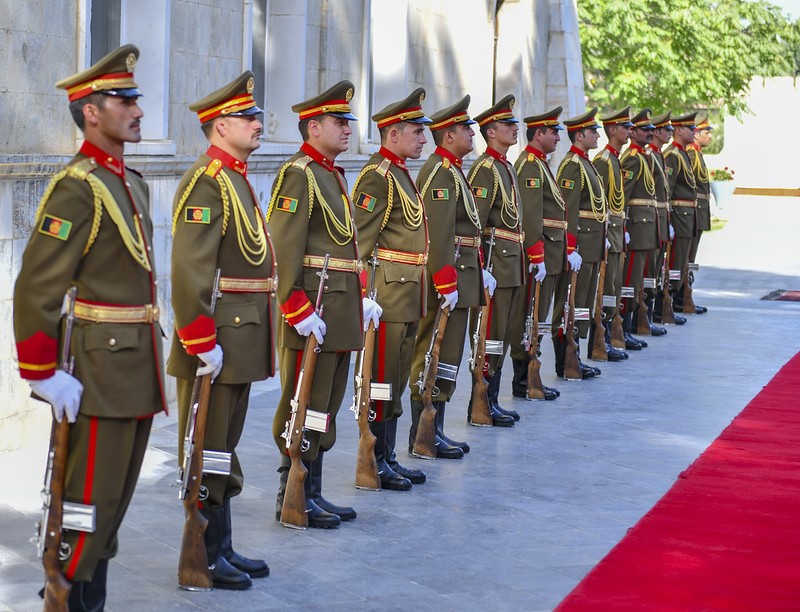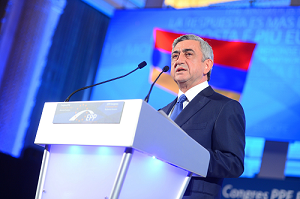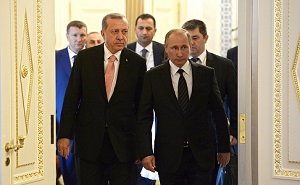Russian and American Strategies for Central Asia Ignore Link to Caucasus, Fall Short
By S. Enders Wimbush
February 18, 2021, the CACI Analyst
Both Russia and the United States are advertising new strategies for dealing with Central Asia, but each is deficient in its own way. While Russia seeks to exclude Afghanistan from its vision of Central Asia, the U.S. explicitly and wisely incorporates Afghanistan as organic to its vision. Neither vision links Central Asia strategically to a larger Eurasian concept that embraces the South Caucasus. To the contrary, both explicitly (the Russian version) or implicitly (the American version) isolate Central Asia geopolitically from the larger emerging political, economic, and security dynamics that Central Asians themselves seek to encourage to establish their region as the connective tissue between Asia and Europe.

Armenia Seeks to Enhance Cooperation with the West
By Natalia Konarzewska
June 22, 2017, the CACI Analyst
Armenia has recently sought to reinvigorate its relationship with NATO and the European Union, despite its membership in Russia-led Eurasian Economic Union (EEU) and Collective Security Treaty Organization (CSTO). In late March, Armenia initialed a new Comprehensive and Enhanced Partnership Agreement with the EU, intended to upgrade bilateral political and economic ties. Moreover, during his recent visit to NATO’s headquarters in Brussels, President Serzh Sargsyan reaffirmed Armenia’s intent to continue top level political dialogue with NATO and the country’s willingness to enhance the scope of joint activities. The push to rekindle relations with NATO and the EU amidst one of the most serious standoffs between Russia and the West suggests that Armenia, which is one of Moscow’s most loyal allies, is reassessing its ties with Russia and Russia-led international blocks.

Weaker Turkey leaves the South Caucasus without Strategic Anchor
By Mamuka Tsereteli
February 17, 2017, the CACI Analyst
The weakening strategic position of Turkey will have a profound impact on the Black Sea-Caspian region and wider Central Asia. An assertive Russia and diminishing U.S. and Western engagement further limits Turkey's ability to play a pro-active role in the region. For regional actors in the South Caucasus, part of the solution should be to create the best possible conditions for transiting Asian cargos via Central Asia, the Caspian Sea, the South Caucasus corridor and the Black Sea to Bulgaria and Romania. This is how countries of the South Caucasus can bring new balancing powers to the region.

Moscow's agenda in Central Asia and the Caucasus: it is official
By Richard Weitz
March 18th, 2016, The CACI Analyst
The states of Central Asia and the South Caucasus are in for a rough ride if recent Russian national security documents and speeches genuinely represent the Kremlin’s worldview. Not only do these texts veto their membership in NATO, but they exclude mutually profitable partnerships for these countries with the European Union and other Western institutions, constrain their domestic development, and encourage the suppression of civil liberties by warning of fictitious Western plots to change their regimes under the guise of democracy promotion and human rights.
Georgia's energy sector: debacle avoided, but Tbilisi needs to move beyond short-term solutions
By Mamuka Tsereteli
March 10th, 2016, The CACI Analyst
On March 4, 2016, Georgia and Azerbaijan reached a deal that allows Georgia to receive close to 500 million cubic meters (mcm) of additional gas annually from Azerbaijan. Georgia’s Minister of Energy Kakha Kaladze announced after the signing that Georgia will no longer need to buy additional volumes of gas from Gazprom. This ends several months of speculation about Georgia’s concessions to Gazprom, fueled by a number of controversial statements by government officials. This agreement strengthens the strategic partnership between Azerbaijan and Georgia, and keeps Georgia from becoming further affected by Gazprom’s coercive power.






